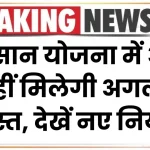
When it comes to your hard-earned money, safety is the top priority. In 2025, Indian consumers are more cautious than ever, looking for the safest banks in India to deposit their savings, open fixed deposits, or manage their day-to-day banking needs. Whether you’re a salaried employee, a retiree, or a business owner, choosing a bank that offers financial security, regulatory compliance, and strong customer service is crucial.
In this article, we break down the Top 10 Safest Indian Banks in 2025, based on RBI guidelines, market performance, and trust factors. These banks have shown resilience in tough times and are backed by strong capital reserves and government or institutional support.
10 Safest Banks in India 2025
| Feature | Details |
|---|---|
| Top 3 Safest Banks | State Bank of India, HDFC Bank, ICICI Bank |
| RBI Designation | SBI, HDFC, and ICICI are classified as D-SIBs (Too Big to Fail) |
| Best Private Sector Bank | HDFC Bank for stability and service |
| Safest PSU Bank | State Bank of India (SBI) |
| Safest Mid-size Bank | Kotak Mahindra Bank |
| Strongest International Presence | Bank of Baroda |
| Known for Customer Service | Axis Bank, IndusInd Bank |
Choosing a safe bank is more important than ever in 2025. Whether you’re looking to open a savings account, invest in FDs, or manage large transactions, stick to banks that are well-capitalized, RBI-regulated, and trusted by millions. The 10 safest banks in India listed here have demonstrated their resilience, reliability, and commitment to customers.
Why Does Bank Safety Matter in 2025?
With rising cyber threats, financial scams, and economic uncertainties, it’s essential to park your money in a bank that is well-regulated, has strong capital adequacy, and follows RBI compliance. In 2020, we saw several banks, including Yes Bank, face moratoriums due to liquidity issues. Since then, customers have become more conscious.
The Reserve Bank of India (RBI) plays a key role in monitoring bank health. It identifies Domestic Systemically Important Banks (D-SIBs) — essentially, banks that are “too big to fail.” If such a bank falters, it could impact the entire economy, so they are required to maintain extra capital buffers.
see also: If You Deposit ₹4040 Every Month, You Will Get This Much Return
Top 10 Safest Banks in India 2025
1. State Bank of India (SBI)
- Type: Public Sector
- Why it’s safe: Backed by the Government of India, SBI is the country’s largest lender. It holds a D-SIB tag and has a vast network of 22,000+ branches and 64,000+ ATMs.
- Capital Adequacy Ratio (2024): 14.1%
- Good for: Savings accounts, fixed deposits, senior citizen schemes.
2. HDFC Bank
- Type: Private Sector
- Why it’s safe: Known for its clean balance sheet and superior digital banking services, HDFC is a D-SIB and India’s most valuable private bank.
- Capital Adequacy Ratio (2024): 18.7%
- Good for: High net worth individuals (HNIs), salaried customers, and urban clientele.
3. ICICI Bank
- Type: Private Sector
- Why it’s safe: ICICI has a robust retail and corporate banking presence, strong digital infrastructure, and is designated as a D-SIB.
- Capital Adequacy Ratio (2024): 17.2%
- Good for: Business accounts, home loans, NRI banking.
4. Kotak Mahindra Bank
- Type: Private Sector
- Why it’s safe: With one of the highest capital adequacy ratios in the industry, Kotak is stable and customer-focused.
- Capital Adequacy Ratio (2024): 23.6%
- Good for: Savings with high interest, low-risk investors.
5. Axis Bank
- Type: Private Sector
- Why it’s safe: A fast-growing bank with a focus on innovation, Axis maintains strong asset quality.
- Capital Adequacy Ratio (2024): 17.7%
- Good for: Young professionals, startup founders.
6. Bank of Baroda (BoB)
- Type: Public Sector
- Why it’s safe: With operations in 24 countries, BoB has diversified risk and strong government support.
- Capital Adequacy Ratio (2024): 14.6%
- Good for: International banking, government schemes.
7. Punjab National Bank (PNB)
- Type: Public Sector
- Why it’s safe: After merging with Oriental Bank and United Bank, PNB has become India’s second-largest PSU bank.
- Capital Adequacy Ratio (2024): 13.8%
- Good for: Traditional banking, rural customers.
8. IndusInd Bank
- Type: Private Sector
- Why it’s safe: Stable asset performance, good customer service, and solid financials.
- Capital Adequacy Ratio (2024): 17.1%
- Good for: Urban customers, auto loans, digital banking.
9. Canara Bank
- Type: Public Sector
- Why it’s safe: With a long-standing presence and strong fundamentals, Canara is a PSU giant.
- Capital Adequacy Ratio (2024): 13.9%
- Good for: Fixed deposits, gold loans, MSMEs.
10. Union Bank of India
- Type: Public Sector
- Why it’s safe: Post-amalgamation, Union Bank now has stronger assets and a wider customer base.
- Capital Adequacy Ratio (2024): 13.7%
- Good for: Affordable banking, pensioners.
How to Choose a Safe Bank: 5 Key Factors
1. RBI Regulation & D-SIB Tag
Always check if the bank is regulated by RBI and whether it’s listed as a D-SIB.
2. Capital Adequacy Ratio (CAR)
A higher CAR means the bank has a good buffer to absorb financial shocks.
3. NPA (Non-Performing Assets)
Banks with low NPAs are better at managing loans and risks.
4. Customer Reviews & Trust Score
Look at public sentiment, customer complaints, and how banks respond to them.
5. Deposit Insurance (DICGC)
All Indian banks are insured by DICGC up to Rs 5 lakh per account.
see also: Fixed Deposits: Invest Till March 31 and Get Benefit
FAQs: Safest Banks in India 2025
Q. Which is the safest bank in India right now?
State Bank of India (SBI) is considered the safest due to its size, government backing, and RBI’s D-SIB status.
Q. Are private banks as safe as public sector banks?
Yes. Private banks like HDFC, ICICI, and Kotak are highly regulated and often more agile with risk management.
Q. Is my money safe if the bank fails?
Deposits up to Rs 5 lakh are insured by DICGC. However, D-SIB banks are unlikely to fail due to strict regulations.
Q. Which bank is best for senior citizens?
SBI, Canara Bank, and BoB offer attractive FD rates and schemes for senior citizens.
Q. Can I trust digital-first banks?
Yes, as long as they are RBI-licensed. But for large deposits, traditional banks with a physical presence may be safer.











